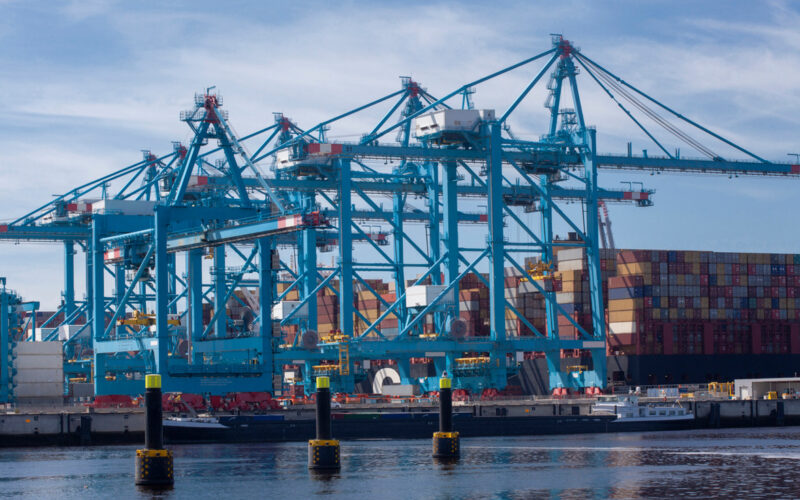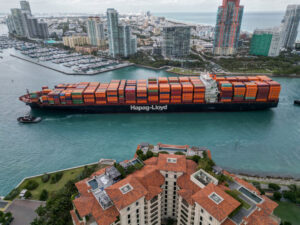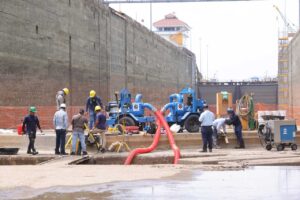The Port of Rotterdam has announced that there was a 10 per cent reduction in CO2 emissions at the port in 2023, amounting to a decrease of 2.2 million tonnes from 2022.
Emissions are one third lower than in 2016, the peak year in terms of CO2 emissions in the port. Moreover, in 2023, CO2 emission levels reached 20.3 million tonnes, falling below those of reference year 1990 (20.6 million tonnes) for the first time.
The decrease was caused mainly by the two coal-fired power stations on the Maasvlakte. In 2023, these plants emitted a total of over 2 million tonnes (38 per cent) less CO2 than in 2022.
Emissions from the three gas-fired power plants in the port increased slightly (0.1 million tonnes). Together, the five energy plants produced 20 per cent less electricity from fossil sources.
Production from refineries remained stable due to high demand. CO2 emissions increased slightly with 0.1 million tonnes (1 per cent). Despite the lower gas prices in 2023, production in the chemical industry did not recuperate. As a result, CO2 emissions decreased further by 0.2 million tonnes (5 per cent).
In the whole of the Netherlands, fossil sources produced 12 per cent less electricity in 2023. The share of electricity from renewable sources increased. Electricity from wind energy increased by 35 per cent and solar-powered electricity increased by 24 per cent.
In order to decrease CO2 emissions in the port by 55 per cent by 2030 compared to 1990, in accordance with the European and Dutch ambitions, the port must achieve a CO2 reduction of 9.3 million tonnes by 2030.
The collaborative projects underway by industry stakeholders, the Port of Rotterdam Authority, and its port partners are projected to result in emissions of 8.1 million tonnes by 2030.
READ: Port of Rotterdam surpasses €800 million
The main impact is caused by capturing CO2 and halting the use of coal in the production of electricity. Moreover, company plans within the port complex impact emission levels. Most notably, the production of biofuels leads to a considerable decrease in CO2 emissions outside of the port, yet it leads to more CO2 emissions within the complex.
Earlier this year, the Port of Rotterdam Authority inked a new deal with VARO Energy Group, thereby renewing their energy partnership.








